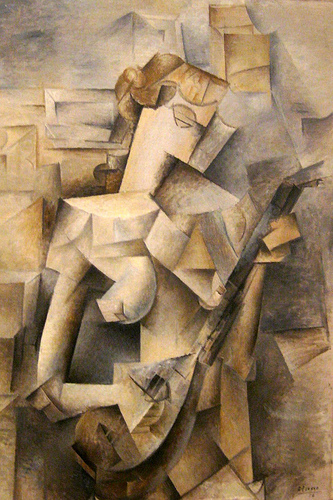Pablo Ruiz y Picasso was born in 1881 in the city of Malaga, Spain. His father was an artist and art teacher. Pablo talent emerging in the very young age and he was a painter, leader of the teenage years. In 1904 he settled in Paris and for the next stay in France. Picasso really was a very productive artist. During his life as an artist was unusually long - about the time three
quarters of a century - he has created more than 20,000 art separate from each other, averaging more than five papers in a week that lasted for 75 years! The vast majority of that time, his work has always stood at the forefront in terms of high prices, because the Picasso became a very wealthy man. He died in the town of Mougins, France, 1973.
Anyway, Picasso no doubt a versatile artist who rarely standard appeal. Although primarily a painter's name, he also did a lot of sculptures. Plus, he's ballet stage designer; he struggled with the art of making pots, leaving a large number of works of lithography, painting over the lines using a pencil or chalk from many other branches of art.
But as a temporary artists, Picasso was also interested in earnest on political issues. In fact, masyhurnya painting "Guernica" (1937), inspired by the events in the Spanish civil war. Several other works also have political significance.
Many famous artists is marked by a range of basic styles. Picasso was not the case. He displays the vast spaces of various styles are astonishing. Art critics gave nicknames like "blue period," "pink period," "neo-classical period" and so on. He is one of the forerunner of "Cubism," He sometimes participating, sometimes oppose new developments in the world of painting, modern painting. Perhaps no artist in history who could do the work with quality so high with through so many styles and ways.






















